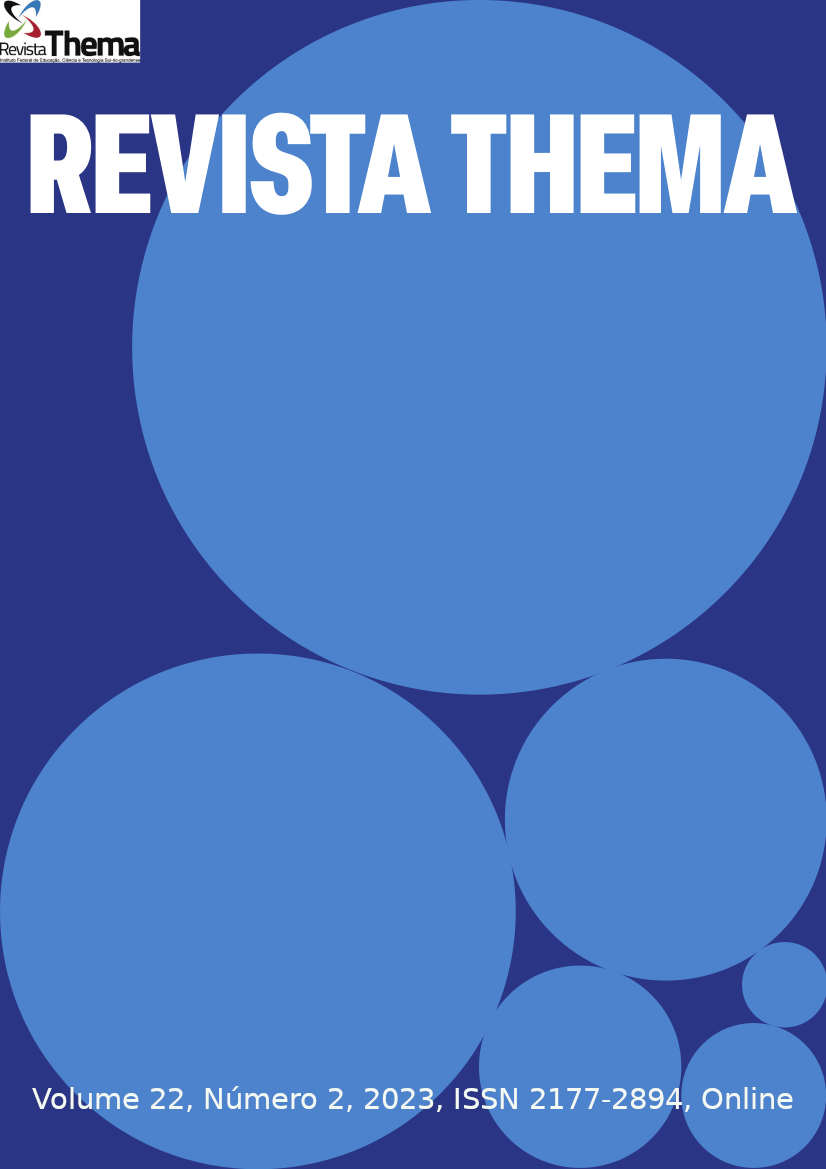Formulating meanings in science classes
an analysis of text productions of elementary school students
DOI:
https://doi.org/10.15536/thema.V22.2023.642-661.3192Keywords:
Science Teaching, discourse analysis, elementary educationAbstract
This paper is part of a qualitative research in which aims to analyze the meanings in text productions of students from the first segment of Elementary School. In the study, reading is understood as a place of meaning production as well as writing in an authorship perspective, seen as the subject's position in relation to society about the socio-scientific issues implicated in their daily lives. The theoretical-methodological is based on French Discourse Analysis, more specifically, the studies on language developed by Eni Orlandi in Brazil. The research comprises activities developed with fourth and fifth grade students from a public school. Several themes were involved the discussions, such as changes on the landscape and excess of consumption habits that lead to electronic waste. Based on the discussions, the students' productions were studied though an analytical tool developed by the researcher Eni Orlandi, following three stages: constitution, description and interpretation of the discursive corpus. Some interpretation gestures were highlighted, such as the forms of repetition, the student's discursive memory, the interdiscourse and the displacements of meanings. The conclusion shows that most students used historical repetition, giving place to the constitution of authorship.
Downloads
Downloads
Published
How to Cite
Issue
Section
License
O autor responsável pela submissão representa todos os autores do trabalho e, ao enviar o artigo para a revista, está garantindo que tem a permissão de todos para fazê-lo. Da mesma forma, assegura que o artigo não viola direitos autorais e que não há plágio no trabalho. A revista não se responsabiliza pelas opiniões emitidas.
A Revista Thema é de acesso aberto (Open Access), sem que haja a necessidade de pagamentos de taxas, seja para submissão ou processamento dos artigos. A revista adota a definição da Budapest Open Access Initiative (BOAI), ou seja, os usuários possuem o direito de ler, baixar, copiar, distribuir, imprimir, buscar e fazer links diretos para os textos completos dos artigos nela publicados.
Todos os artigos são publicados com a licença Creative Commons Atribuição-NãoComercial 4.0 Internacional. Os autores mantém os direitos autorais sobre suas produções, devendo ser contatados diretamente se houver interesse em uso comercial dos trabalhos.





